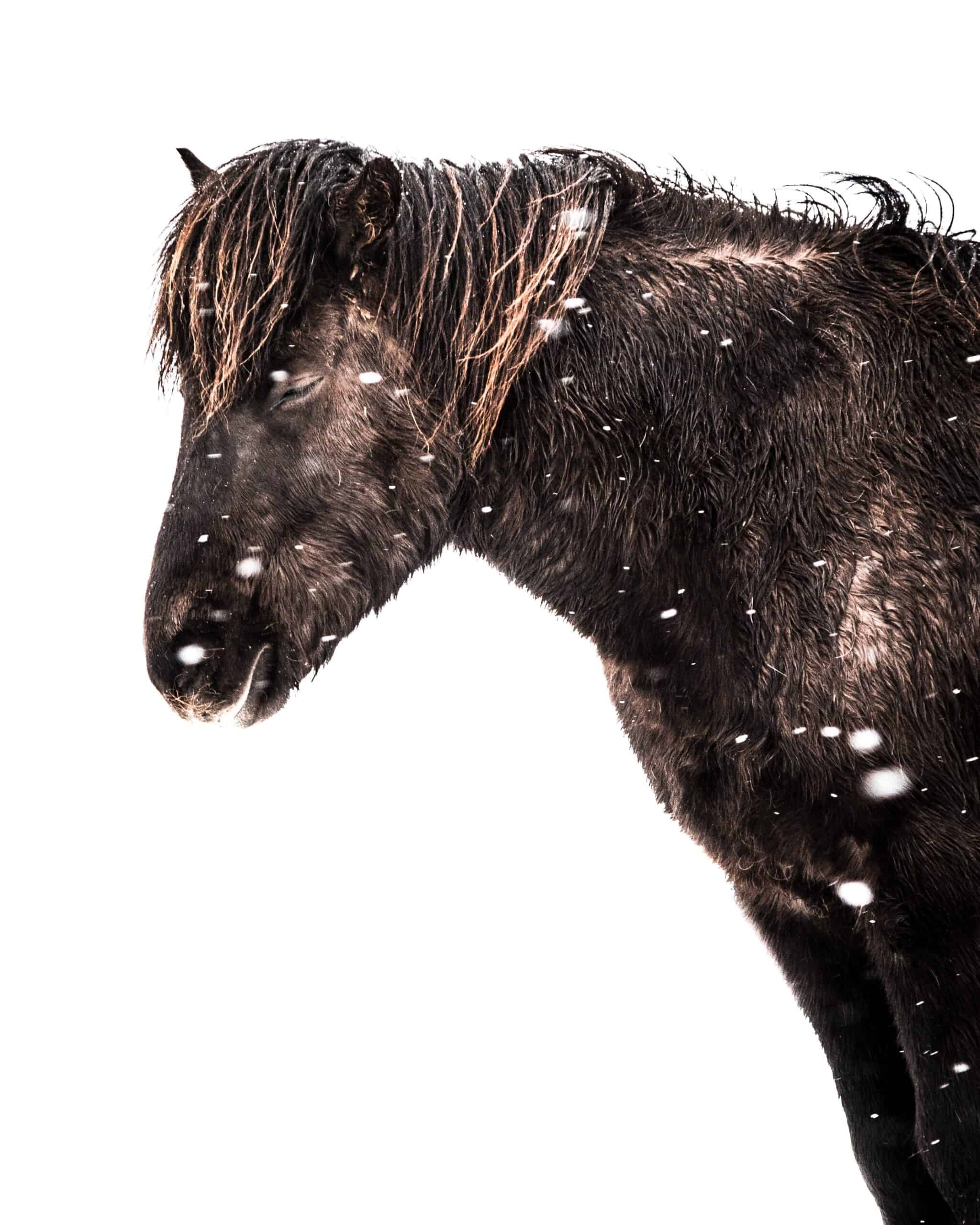Canada-wide flat shipping $9.99 | Free shipping for orders over $100
Most people who come to my home always have a question or two about the horses in the field next to the house. It’s not surprising, they are hard to miss considering that they are right next to my driveway!
Questions range from “Are they yours?” to “Aren’t they small/big?” I’ve put together a list of the most common questions.
Some horses need them much like we need orthotics. And some horses need them because of the terrain like runners or hikers. And some horses, like mine, don’t need them. A farrier trims their hooves every 6 to 8 weeks and he lets me know if he sees anything of concern. My pasture pets don’t work very much and have good feet, so shoes aren’t needed.
For me, it is also a cost-saving measure. I will jump through hoops to avoid putting shoes on my horses for as long as possible; however, if my vet or farrier tells me we need to seriously consider shoes, then on they go!
Lots and lots and lots of grass or hay supplemented with extra vitamins and minerals depending on the quality and age of the roughage. Even in this, there are different schools of thought: some like free-choice hay, some prefer a few feedings a day some prefer more. Depending on the age, activity, and health of the horse, grain can be added.
And of course, they love apples, carrots and a whole bunch of treats.
This isn’t really a question, but I get this comment often. They are expensive, but no more expensive than your ski passes, equipment, hotels, and gas all put together. With careful management and prevention, horses can be “affordable” in the sense that we can enjoy them as trail ponies without breaking the bank. Although it also means that we don’t stray too far from the house and we don’t go on vacation.
The expensive items start lining up once you start down the road toward competing. Then you pay your coach for regular lessons, you pay for trailering your horse to the competition and, you buy all the tack. This can add up quickly!
I’ll preface my answer with the fact that we live in Canada. It gets rather cold in the winter. Although, sadly there are no igloos in our part of town!
Horses, when left to their own devices, are remarkably well adapted for cold temperatures. As long as they are healthy and given plenty of food and water, combined with shelter and the opportunity to get used to the changing seasons, they do rather well.
So to answer the question, we take care of them, keep an eye out for warning signs of discomfort, and occasionally take them out for trail rides, weather permitting.
Issues arise when humans get into the mix. When we ride them in the winter, we need to “shave” them, also called clipping, so that they have a chance to dry off the sweat, which in turn leads to their needing a blanket to be outside.
Equestrians are a passionate group of people and they do their best to take care of their equine partners. Blanketing is a hotly debated subject that rears its ugly head every year. The important thing to retain here is that we take care of our horses the best we know how. As long as the horse is happy, we are too.
Ours do, most of the time. Most don’t. Some horses like to be outside all the time and some don’t. We keep ours outside because they are healthy and we’ve made sure to provide all they need to be comfortable. It all depends on the horse and the installations.
The important thing to take away here is that horses are expensive, time-consuming, and at times frustrating animals, but equestrians know that any time spent on these animals is worth so much more than a day at the spa.

2 Responses
How do you know when a horse is cold?
That’s a good question! Just like any mammal, when they are cold they shiver. They also have cold extremities, a good spot to check is their ears. Those are my go-to checks, but to be honest, horses are really good at letting you know that they want to be brought inside, just like dogs and cats!